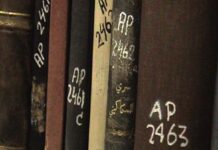Ayman Nobani
Middle East Eye / July 4, 2023
Violent home intrusions and incessant shelling torment Jenin residents in Israel’s biggest military operation since the Second Intifada.
Jenin, Occupied West Bank – Thousands of Palestinian residents have fled their homes in the Jenin refugee camp after Israel launched one of its biggest attacks on the area in two decades, killing at least 11 Palestinians and wounding dozens.
The latest incursion into the West Bank’s northernmost camp began on Sunday night as hundreds of soldiers poured in and drone attacks and missiles damaged buildings and critical infrastructure.
At Jenin’s public hospital, Thaer Abu Johar, 33, was eagerly biting into an apple. “This is the first thing I ate in two days,” he told Al-Jazeera on Tuesday.
Israeli forces stormed the four-storey building where his family lived with five others at noon on Monday. He estimated more than 200 soldiers took part in the raid.
His relative Odai Alaqmeh, 20, said the soldiers “shot live ammunition inside our house” and separated the men from the women and children.
“They kept telling us, ‘you can leave in five minutes’. But more and more soldiers started coming in and they slept in the house,” he said. “We haven’t eaten anything since yesterday. They only gave us water.”
When in the night the Israeli officers fired a missile from their rooftop, the “whole building shook”.
“They hit a home in front of ours, it’s on fire. It’s still on fire,” Alaqmeh said. “They didn’t have any mercy on anyone.”
The western neighbourhood where they lived was a ghost town when they evacuated on Tuesday after the Israeli soldiers left and they made their way to safety, carrying children and two relatives in wheelchairs through the maze of debris and rubble.
The UN’s humanitarian affairs coordination office, OCHA, warned the air raids resulted in significant damage to infrastructure and most of the Jenin camp lost access to drinking water and electricity.
According to the UN, ambulances with medical teams were prevented from entering parts of the refugee camp and reaching those critically wounded.
‘A thorn in their side’
A Palestinian woman also seeking refuge at Jenin’s public hospital said all her male relatives were arrested by Israeli forces, including her husband and son.
“They entered our homes in Al-Mayhoub street yesterday afternoon,” Nathmiyeh Mer’i, 53, told Al-Jazeera. “They started shouting at us, ‘Don’t talk, be quiet, sit down.’”
Her three grandchildren – one, three and four years old – were “shaken”. “I tried to distract them, play with them,” she said.
Outside, they could hear military aircraft and the sound of shelling. “Wherever it hits, it hits,” Mer’i said matter-of-factly.
Residents of the camp, one kilometre (0.6 miles) west of Jenin city, are descendants of Palestinians dispossessed of their land and homes when the state of Israel was created in 1948, an event known as the “Nakba” – or “catastrophe” – among Palestinians and other Arabs.
The Israeli military operation against the Jenin refugee camp is the largest since the 2000-2005 Second Intifada, a mass Palestinian uprising against Israel’s decades-long occupation.
Mer’i said she was forced to flee in 2002 when the camp was ambushed by Israeli soldiers and nearly destroyed. At the time, they entered her sister-in-law’s home, killing her mother, father and a child.
“This is the second time we leave the camp, and it’s the third time we are displaced since the Nakba,” she said. “What do they want from us?”
Israel has portrayed the camp as a den of “terrorists” who threaten its security and, therefore, is justified in using deadly force.
The camp has become home to hundreds of armed Palestinian fighters who have emerged as a symbol of resistance.
Mer’i said Israeli forces went from one home to the next looking for “wanted men” and making arrests.
“We said we don’t have anyone wanted here,” she recounted, but her relatives were taken in custody nonetheless. “I hope all the young men of the camp are safe – and that we remain a thorn in their side.”
Ayman Nobani is a Palestinian photographer



![vrijdag 17 mei in Amsterdam: in gesprek [videoverbinding] met Palestijnse arts Ghassan Abu-Sittah](https://palestina-komitee.nl/wp-content/uploads/2024/04/abu-Sittha-1-1-218x150.png)








